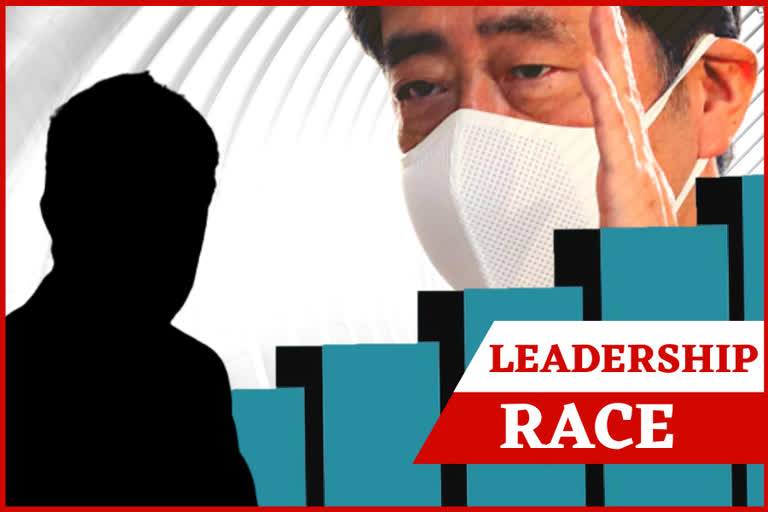Tokyo: With Prime Minister Shinzo Abe announcing his plans to step down due to health reasons, members of his ruling party are furiously manoeuvring ahead of an internal vote that will ultimately decide his successor.
Executives of Abe's ruling Liberal Democratic Party met on Tuesday and decided that the September 14 vote for party leader — and with it, almost assuredly prime minister — will be limited to lawmakers and not broader members of the party. Some younger lawmakers had called for the latter to be included in order to make the process more open and democratic.
Read also: Japan PM Abe resigns for health reasons
Whoever is chosen will fill in for the rest of Abe's term, until September 2021. The next prime minister will face a number of challenges, including the ongoing fight against COVID-19, managing the Tokyo Olympics that has been postponed to next summer, setting Japan's security policy in the face of an increasingly assertive China, and dealing with the results are of the presidential election in the US, Tokyo's key ally.
Here are the three candidates, who have either announced their intention to run or are expected to do so:
Yoshihide Suga: Japan's top government spokesman and Abe's longtime right-hand man, the 71-year-old Suga has emerged as the favourite among ruling party heavyweights.
Suga has been pegged by the party's secretary-general as the best caretaker who can ensure the continuation of Abe's policies.
The son of a farmer in the northern prefecture of Akita, Suga is a self-made politician, rare in Japan's largely hereditary world of politics.
As chief cabinet secretary, Suga is a policy coordinator and advisor to Abe. He is also the public face of Abe's government, doing twice-daily televised media briefings.
Read also: Japan PM sets record for consecutive days in office
He is known as "Uncle Reiwa" after he was tasked with unveiling the new imperial era name for Emperor Naruhito last year. Suga has been a loyal supporter of Abe since his first stint as prime minister from 2006-2007 and helped his return to power in 2012.
Suga had previously denied that he would run, but on Monday simply told reporters he would not comment.
Fumio Kishida: Abe's foreign minister from 2012-2017, the 63-year-old Kishida had once been considered the party's preferred choice to become the next prime minister.
His status has slipped, however, after he was seen as fumbling some of the party's response to the coronavirus in his role as the policy chief.
While announcing his candidacy on Tuesday, Kishida said he would be a leader who listens to the voices of the people — something Abe has been criticized for not doing enough.
A low-key lawmaker from Hiroshima with somewhat dovish stance on security issues, he has been less supportive of Abe's longtime push to rewrite Japan's war-renouncing Constitution.
Kishida struck a 2015 settlement with South Korea on "comfort women" victims of Japan's wartime sexual abuse. Kishida in 2017 helped arrange then-president Barack Obama's visit to Hiroshima, a first for a serving American leader.
Shigeru Ishiba: A former defence minister seen as Abe's archrival within the party, the 63-year-old Ishiba is the public's favourite for the next prime minister in media surveys.
Ishiba's vocal criticism of Abe, however, has hurt his popularity among ruling party lawmakers. He has criticized Abe's rule as autocratic and raised concerns about growing poverty.
A soft-spoken banker-turned-politician, Ishiba is known as a defence hawk and said that Japan should have a stronger military capability within the current constitutional limitations. In addition to the defence minister, Ishiba has also held top ministry posts in agriculture and local revitalization. He lost to Abe twice in party elections in 2012 and 2018.
AP



